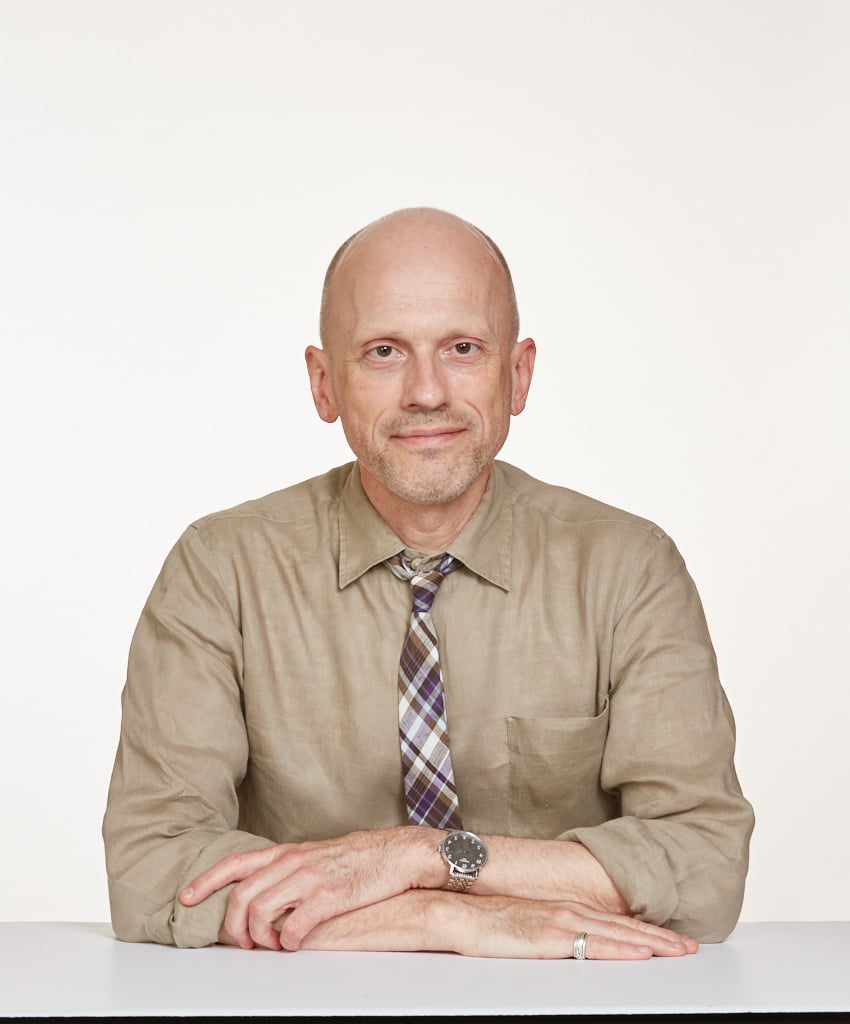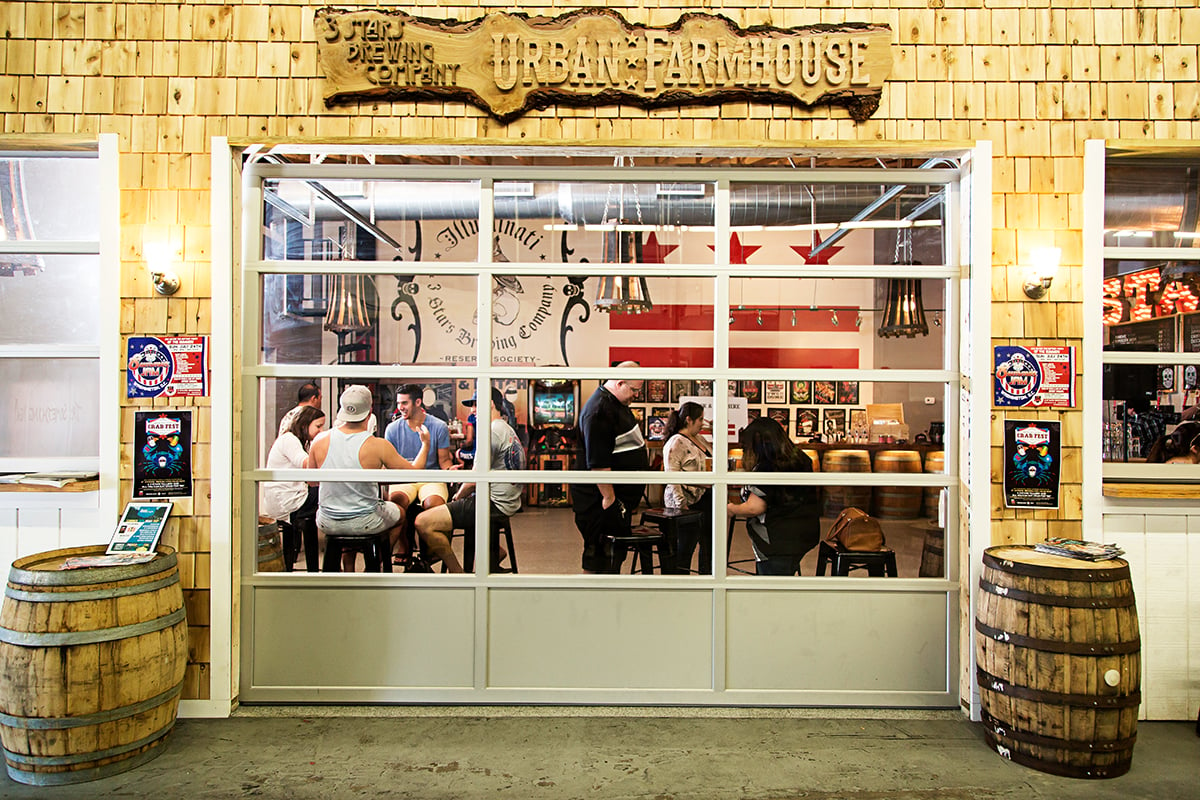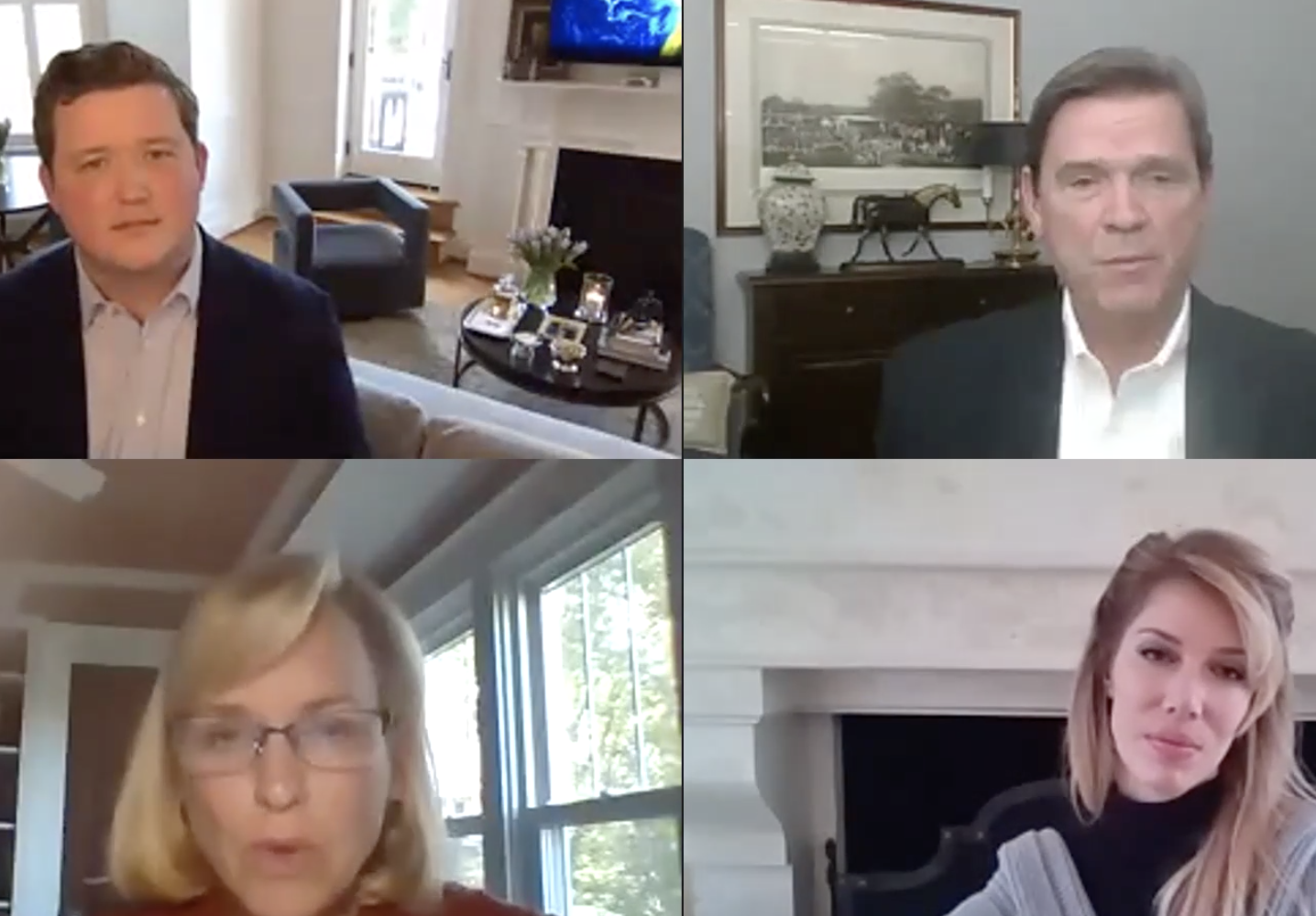It can take years to fully understand a movie's effect on you. Maybe you saw The Graduate as a teenager and were both fascinated and terrified by its mordant glimpses of adulthood. Or a family drama like Ordinary People might have spoken to your own situation and made you feel less alone. Perhaps a very visual film–a classic like The Third Man–awakened you to the possibilities in movies themselves.
A movie's impact can be blunt but lasting. Jaws made some people rethink the whole idea of swimming.
"There's a reason for that 'Wow!' which often seems all that a person can say after coming out of a movie house," film critic Pauline Kael wrote. "So many images, sounds, and awakened memories may contribute to the film's effect on us that often we can't quite sort out what we think about the way we've been moved."
We asked Washingtonians, "What is the movie that changed your life?" Each of these stories is a movie lover saying, "Wow!"
Patricia Elam is a writer and radio commentator in DC. Her first novel, Breathing Room, will be published in January by Pocket Books.
"I was in law school when I saw the miniseries Roots. I remember feeling pride, sadness, fear, but the thing that stands out is that there were all these black people on television–we hadn't seen that–and it was our story, our history.
"I had integrated a white all-girls school in Boston in 1964. I had no idea there were going to be people there who had never seen black people–or if they had, they were maids or chauffeurs. These were rich girls. I tried to be like them–tried to do stuff with my hair that didn't work, tried to wear what at the time was the style–kilt skirts, no socks, and loafers, even in winter. I remember my mother saying, 'There's no way you're going out of here with no socks,' and then I'd take my socks off on the bus. I tried everything to fit in. I went to dinner at one family's house where the mother asked me if my family sang 'We Shall Overcome' at dinner.
"When I went to college, I gravitated to the black student union, hung out in the black dorms. It was important to me to search for who I was as a black person, what I had to be proud of. My parents tried hard to instill that in us in terms of books and events they exposed us to, but Roots pulled it all together.
"I remember crying a lot watching it and not knowing why–just feeling that when I looked at those characters, they were me. And being impressed that whoever put it on television thought it was important.
"It was devastating to see Kunta Kinte ripped from his African roots. In that scene where the slave owners want him to be called Toby, he keeps saying, 'Kunta,' and they just beat it out of him. I wasn't able to sleep some nights.
"I rented it a few years ago for my older son, who's now 18, and watched it again. It still had a tremendous impact, especially watching it through his eyes. I was trying to do things to give him a foundation for who he was–he took African-drumming lessons and went through a rites-of-passage ceremony. Watching Roots with him, I remember his amazement: 'Did this really happen?' And his tears."
Paula Gruskiewicz is an actress who has performed at the Kennedy Center, Woolly Mammoth, and other theaters. She recently played Tallulah Bankhead in Queen of Clubs at DC's Church Street Theater.
"I was 10 or 11 when I saw The Trouble With Angels. Hayley Mills plays Mary Clancy, this 'bad' girl in a convent school. She's a rebel who's always cutting class or smoking. I was a good kid who followed the rules, so there was something about her rebelliousness that I envied. Little by little, she's taken with the nuns' life and their devotion. She has this gradual awakening and decides to join the convent.
"What appealed to me was that such a maverick could be a part of something but not have to change who she was. I thought, 'You don't have to give up yourself to belong to something–or someone.' It's a subtle but strong message.
"There's a scene where Mary helps the nuns serve cookies at an old folks' home–which is what I think they called it–at Christmas. There's one old woman who's upset because her adult children aren't visiting her, and Rosalind Russell, who plays the mother superior, is comforting her. She finally tells the woman, 'Go dry your eyes and put on some lipstick and let's come back to enjoy the party.' Hayley Mills's character sees the compassion the mother superior has for this woman. Even though she says something flippant at the time, you can see it's made an inroad into her psyche and her heart. There's a series of episodes where you can see her heart opening.
"That and other movies I saw when I was young made me want to be an actor because I wanted to tell stories that could touch people as I'd been touched."
Pamela Gilbert, a lawyer, is executive director of the US Consumer Product Safety Commission.
"One of my favorite movies is The Philadelphia Story with Katharine Hepburn and Cary Grant. While the movie itself is quite light and I don't think influenced me much, Hepburn did. As a person and a role model she's had a lot of impact on my life. She was very strong-willed, very independent. She wore pants when no women wore pants in Hollywood, went her own way, produced her own movies. She married once but in general chose not to be married and not to have children.
"I was about ten the first time I saw it. It was on TV, and I was a junkie for old movies. My mother recommended that I watch it, and I was very much taken with it. The characters are rich and beautiful and wear nice clothes, and everybody's in love with Hepburn. As a little girl, I was kind of in awe of that.
"As I've gotten older and have seen it more, there actually is a good message. Hepburn's character is a little too perfect. She's so beautiful and sure of herself and is always 'right.' The message is that you have to be less judgmental about yourself and about others. That's one of the most important characteristics that I look for in myself and in other people. I don't know which came first–whether I took that away from the movie or I was attracted to the movie partly because I find that so important.
"It's very true in having chosen a public-interest career. I try to make sure not to judge others who might have gone into a private career with money as one of their motivators. That's hard sometimes–we get a little self-righteous. But it's important not to, because that's a perfectly legitimate choice."
Bob Moyer graduated in May from the University of Maryland.
"I saw Blade Runner not when it came out, because I was three or four, but several years later, in the early '90s.
"I'm a big science-fiction fan. The main science-fiction movies I had seen up to that time were Star Wars and Star Trek. Blade Runner was the first one that really meant something, like someone had taken the effort to make it a real movie as opposed to dismissing it as 'sci-fi.'
"The career that I'm trying to go into is computer graphics. I've been interested in that for a long time, since fourth grade. I wasn't really sure where I wanted to take it, but seeing this movie pointed me more toward film. At Maryland I created my own major in computer graphics, and I'll be going to grad school in that.
"Blade Runner was the first movie that struck me as having a total design to it–a view that the director had. It was neat in terms of perspective because it was made in the '80s, when everyone thought Japan was going to buy out the country, so it's got this entire look of Los Angeles with Japanese and English text on signs–stuff like that. When I'm trying to design or write something, I look back on that movie. It's one of my big influences. I've probably seen it 14 times.
"Like the Alien movies, Blade Runner has this incredible mood–it's a mood piece. But it's better than the Alien movies because it's more structured; the director created a universe within it. The first time I saw it, I felt completely a part of it. When I do my own work, I try in some measure to capture that–completely drawing the viewer in."
Albert Wynn is a congressman from Maryland's Fourth District.
"I saw Chariots of Fire when it came out, just before I started my political career, when I was looking at how people dealt with obstacles. There were two important things to me in it: Eric Liddell, the runner who stood on principle by refusing to run on the Sabbath and was a hero because of that, and Harold Abrahams, who got the most out of his talents through sheer determination and went against significant odds. I like movies where you have a valiant underdog.
"There was the climactic scene where, having sacrificed the opportunity to run in his specialty, Liddell was running just for the joy of it, and then did well despite that. But the thing I liked the most was the English runner Aubrey Montague,T who was considered good but not great and who had to stand in for Liddell in the original race. He was in a difficult situation because his country was disappointed that the hero wasn't there. I appreciated the intensity of his will to win.
"I finished high school in 1969. All through that period there had been civil-rights and peace demonstrations. I became conscious of the role of government in people's lives and the need to get involved. In college I majored in political science and began to understand how the democratic system worked and what you needed to do to make changes.
"My first run for office was in 1982, when I was elected to the Maryland legislature. When I ran for Congress in 1992, I think the first poll placed me in fourth or fifth place, but I won. I'm inspired by acts of determination, both real and fictional, because there's nothing greater than the human spirit.
"Whenever I see Chariots of Fire, I'm still there with my fists clenched."


















